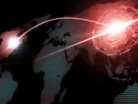China Criticises EU Tariffs on EVs as Protectionist

Following the US and Turkey imposing tariffs on Chinese EVs, the EU announced its intention to impose tariffs on China-made electric cars.
Europe now braces for potential repercussions. The EU's decision to impose tariffs on China-made EVs has ignited significant international discourse.
Labelling the move as "a blatant act of protectionism", China's response underscores the tension between two of the world's largest economic blocs.
The proposed EU tariffs will vary by company. For instance, BYD would face an additional 17.4% charge, Geely — owner of Sweden's Volvo — 20% and SAIC 38.1%. China reserves the right to present its case to the World Trade Organization and take necessary measures to safeguard its enterprises' rights.
China's initial reaction
Impact on Chinese EV manufacturers
Chinese EV manufacturers like BYD, NIO and Xpeng, which have been expanding into the European market, will likely face immediate challenges. The higher costs due to increased tariffs could reduce their competitiveness.
However, these companies are expected to adapt by exploring alternative markets and enhancing their technological capabilities to maintain their global presence.
Trade wars
Analysts have warned that there is a severe trade war risk, which would raise prices for consumers and hurt exporters and their workers in Europe and China — even as each serves as a major market for the other.
"It's a little bit like seeing a slow-motion traffic accident unfolding," Jens Eskelund, President of the European Chamber of Commerce in China said earlier this year. "The accident has not happened yet and it is still possible to find an off-ramp. It is getting urgent."
China fired a warning shot in January, launching an anti-dumping investigation into European brandy exports, including French cognac. France was a leading supporter of the EU investigation, which resulted in the recent tariff announcement.
Strategic shifts and innovation
Given these challenges, Chinese EV makers will likely accelerate their focus on innovation and cost reduction. Increased investments in research and development will be crucial as companies strive to develop cutting-edge technologies that can help them stay competitive despite the tariffs. Strategic partnerships with non-European firms and investments in overseas production facilities could form part of their response strategy.
Strategic shifts and innovation
Given these challenges, Chinese EV makers will likely accelerate their focus on innovation and cost reduction. Increased investments in research and development will be crucial as companies strive to develop cutting-edge technologies that can help them stay competitive despite the tariffs. Strategic partnerships with non-European firms and investments in overseas production facilities could form part of their response strategy.
Global implications
The imposition of EU tariffs on Chinese EVs and China's subsequent response has broader implications for the global EV market.
Other regions may find themselves caught in the crossfire, needing to navigate the changing landscape of international trade policies. The tariffs could shift the global supply chain, with companies seeking to diversify their manufacturing bases to mitigate the risks associated with geopolitical tensions.
China's response to EU tariffs on EVs highlights the complexities of international trade and the strategic importance of the EV industry. As both sides grapple with the tariffs' implications, the global market is set for adjustment and realignment.
The coming months will be crucial in determining how Chinese EV manufacturers navigate these challenges and how the global EV landscape evolves in response to these significant economic policy shifts.
In this rapidly changing environment, stakeholders across the EV industry must stay informed and agile, ready to adapt to new developments.
The interplay between protectionism and free trade will continue to shape the future of electric mobility, with China and the EU playing pivotal roles in this unfolding narrative.
*******************
Make sure you check out the latest edition of EV Magazine and also sign up to our global conference series - Sustainability LIVE 2024.
*******************
EV Magazine is a BizClik brand.
- BYD Surpasses Tesla in Quarterly Sales Amid EV Market ShakeuMobility
- SMMT: Car Manufacturing Challenges Amid Industry PressureMobility
- Charge Gully: Bridge EV Gaps for Deprived AreasCharging & Infrastructure
- Emporia & Treehouse Simplify Home EV Charging & InstallationCharging & Infrastructure


